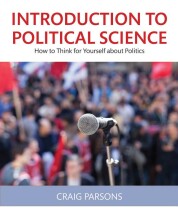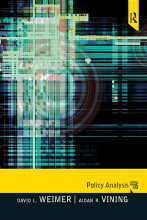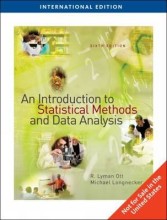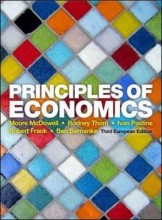Inside Liberal Democracy I: Representation - Voting rules: how citizens choose
8 important questions on Inside Liberal Democracy I: Representation - Voting rules: how citizens choose
Once we set alternative voting rules alongside each other, it becomes clear that they represent citizens;s views in profoundly different ways and that they connect to contrasting principles of representation. The two most common kinds of rules, which directly apply majoritarian and proportional principles, are know as:
- proportional representation (PR)
Single-member plurality (SMP) is the official term for the simple voting rules used in the US, Britain, Canada and more than forty other countries, which means:
The main effect of SMP rules is that they systematically benefit the most common views in society and hinder less common positions. It rewards the loudest voices with overrepresentation, which is:
disproportionality.
- Higher grades + faster learning
- Never study anything twice
- 100% sure, 100% understanding
Operating un roughly 70 countries, proportional representation (PR) voting rules are more common than SMP. It consists of:
Name 4 differences on effects between SMP and PR rules.
- More people get the representation the want under PR than under SMP rules.
- PR can fragment assemblies chaotically into many small parties, which is not the case with SMP.
- The persons selected under SMP rules see themselves as speaking for their territorial constituency (the voters whom an elected official represents), PR representatives have no such connection.
- SMP legislators can be susceptible to pork-barrel politics (the practice of securing government spending for an official's constituency without considering goals of desirable policy). PR representatives, by contrasts, are selected for their positions in national level debates.
Both SMP and PR rules have the advantage of simplicity. Many democracies modify them into more complex option, to have more balanced and subtler effects on representation. However, this also makes representation harder for citizens to understand. Name two modified versions of SMP voting rules.
- Two-round system: also knows as a 'runoff system'. If no candidate receives an outright majority of 50 percent in an SMP vote, the top two finishers compete in a second vote (=more influence for minorities while still ensuring that big movements win overall).
- Alternative vote (AV) system: voters rank candidates in order of preferences. If no one wins 50 percent of first preferences outright, the candidate with the fewest votes is eliminated.
Two modifications of PR rules (to diminish fragmentation) are:
- Threshold rule: parties relieve a share of seats only in they receive more than a certain percentage of votes, typically from 2 to 10 percent.
- Mixed-member systems: some seats are won under SMP rules and some seats are won under PR rules (balances some SMP encouragement of decisive mandates for large political movements with some PR openings for greater diversity).
Across SMP, PR, and other systems, voting rules often mix in descriptive representation as well. Two examples are:
- Gender quotas: rules that incentivize or require that a certain portion of candidates or elected official be women.
- Race and ethnic motivated voting rules: e.g. Gerrymandering (the redrawing of electoral districts to capture certain kinds of voters). However, this also encourages polarization.
The question on the page originate from the summary of the following study material:
- A unique study and practice tool
- Never study anything twice again
- Get the grades you hope for
- 100% sure, 100% understanding































